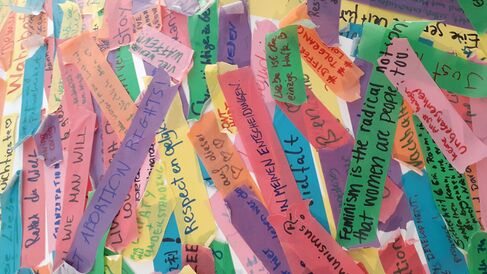
Responding to questions at her inaugural lecture, Professor Esra Özyürek referred briefly to the work of Dr Irit Dekel (Assistant Professor of Germanic Studies and Jewish Studies at Indiana University, Bloomington). The two academics are well-acquainted with each other’s work. In recent times, they have begun to document their scholarly dialogue in joint publications. In an interview for the Southampton-based Parkes Institute published last week, they discuss their work with particular reference to their latest co-publication. What follows are some extracts from that interview.
The new article, “The logic of the fight against antisemitism in Germany in three cultural shifts”, appeared in Patterns of Prejudice, the Parkes Institute’s in-house journal, in April 2023. How do the authors summarise their work?
Dekel and Özyürek start by characterising the article as the outworking of “a long and fruitful dialogue on the entanglement of religion and ethnic-based discrimination, memory politics, and the discourses on antisemitism and Islamophobia in present day Germany”. More specifically, they describe how they have “analysed German daily media discussions on antisemitism and work by governmental and non-governmental organisations”. The material discussed includes motions from the Bundestag, and reports from the Federal Association of departments for Research and Information on Antisemitism (RIAS).
Why this research?
The question that motivated them? Both had observed a mismatch between a focus of public discourse presenting Muslims as antisemites and the statistical data about antisemitic acts in present-day Germany. What, they wondered, are the social processes and discursive mechanisms that “derive and sustain t[his] discrepancy”? Why is the quantity of accusations of antisemitism growing? And why is there an “emotional investment in the focus on Muslims, as well as politically left and progressive actors who express solidarity with these minorities”?
Their answer is intimated in the journal article's title: they detected and delineate three shifts in the discourse of Holocaust memory, which impact accusations of antisemitism: “[F]irst, from Holocaust memory to antisemitism; second, from antisemitism’s German perpetrators to designated Others; and third, from guilt and responsibility to shame.” (For those who audited the recent lecture, the resonance with Professor Özyürek's book Subcontractors of Guilt will be evident.)
Why now?
Discussing the relevance of their work, Dekel and Özyürek note how the phenomena that they have observed and analyse coincided “with the entry of the far-right party, Alternative for Germany (AfD in its German acronym), into the German parliament in 2018”. Asked what their article reveals about Jewish and non-Jewish relations, they tell us that they (and readers of their work) can now “better understand how the Eurocentric Judaeo-Christian myth works by pointing fingers at one or several minorities, specifically the Muslim minority, as those who put another, namely Jewish minority, in danger.”
Concretely, they report two trends that emerged:
“The first one tries to offload the guilt and shame of antisemitism to racialised others as well as progressive and left-leaning Jews, to show white Christian background Germans as doing the hard work of locating and pointing fingers at antisemites. The second trend is of strong networks of solidarity among racialised groups which work and, in crucial ways, succeed in challenging an ethnic understanding of German identity.”
What next?
A penultimate question asks what, if anything, got “left on the cutting room floor”. The question is a neat one, since it not only captures the activity of academic editing but (in the answer) touches upon what might come next from this productive pair. The answer promises a further joint publication: “we plan to develop the discussion on shame as a socially delimiting emotion when expressed as nationally felt in the German media report on Antisemitic attacks.”
Thanks to Irit Dekel & to The Parkes Institute for their permission to republish parts of the article and its feature image. If you would like to know what it represents in the authors' terms, and its significance for their work, we recommend you read the interview in full on the Parkes Institute blog (see link below). It appears with a generous set of recommendations for further reading.
Further reading
- [The full] Interview with Irit Dekel and Esra Özyürek, Parkes Institute Blog (Wordpress.com), 8 June 2023.
- [Journal article:] The logic of the fight against antisemitism in Germany in three cultural shifts, in Patterns of Prejudice (via tandfonline.com), 04 April 2023.
Dekel is a key partner in Özyürek’s Entangled Otherings project, funded by the DAAD Cambridge Research Hub for German Studies with additional support from the British Academy.
A previous joint article was included in the first DAAD Yearbook of German and European Studies in December 2022. Read "What do we talk about when we talk about antisemitism in Germany?" in the DAAD ZDES Jahrbuch 2022 (via daad.de).
Notes
Reference to Dr Dekel’s work came in response to the first question (ca. 01:05:58). Watch that question and response again on the Faculty of Divinity YouTube channel (via YouTube.com).
